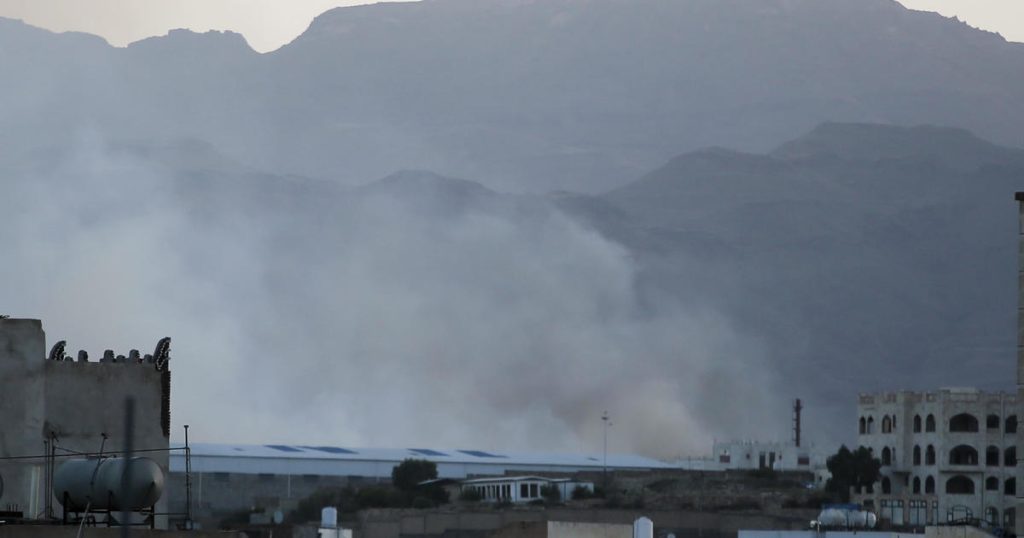The U.S. military recently conducted airstrikes in Yemen targeting Houthi rebels who have been launching attacks on U.S. Navy ships in the Red Sea. These strikes hit 15 targets containing Houthi offensive military capabilities, aimed at protecting freedom of navigation and making international waters safer for U.S., coalition, and merchant vessels. Despite months of U.S. airstrikes, the Houthis have continued their campaign targeting ships, sinking two and hijacking another. The group claims it is protesting Israel’s war in Gaza, but many of the targeted ships have no connection to the conflict.
In addition to targeting ships in the Red Sea, the Houthis have launched attacks directly at Israel, using drones and missiles. These attacks prompted Israeli responses targeting sites in Yemen. U.S. Central Command forces regularly launch strikes against Houthi missile or drone launchers to prevent attacks on U.S. military or commercial ships. While previous strikes have targeted launchers and infrastructure like storage facilities, the continued attacks indicate that the Houthis have not been deterred. Although the strikes have degraded some of the Houthi capabilities, the group still maintains a robust arsenal.
The Houthis, like other militant groups such as Hamas in Gaza and Hezbollah in Lebanon, have received support and weapons from Iran. The ongoing conflict in Yemen has led to a complex situation where various groups are vying for control and influence in the region. The U.S. military’s actions in Yemen are part of broader efforts to ensure the safety of international shipping lanes and prevent attacks on U.S. interests in the region. Despite targeted airstrikes and efforts to degrade Houthi capabilities, the group continues to pose a threat to maritime security in the area.
The attacks on ships in the Red Sea and direct actions against Israel highlight the regional tensions and complexities involved in the conflict in Yemen. The U.S. military’s response to the Houthi attacks underscores the importance of maintaining stability and security in the region. The ongoing conflict in Yemen has broader implications for international security and the balance of power in the Middle East. Efforts to address the root causes of the conflict and prevent further escalation are crucial for ensuring peace and stability in the region. The situation in Yemen remains fluid, with various actors involved and competing interests at play.














